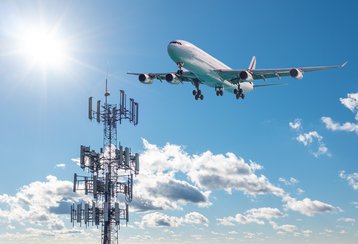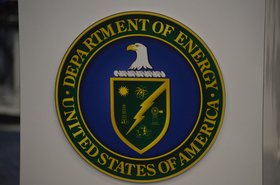Elon Musk's Starlink is reportedly close to winning a $2.4 billion contract from the Federal Aviation Administration (FAA) at the expense of Verizon.
As reported by the Washington Post this week, the FAA is close to canceling the contract it awarded to Verizon back in 2023.
The contract set out to overhaul a communications system that serves as the backbone of the nation’s air traffic control system.
Sources told the publication that the FAA is considering awarding the contract to SpaceX subsidiary Starlink.
Verizon didn't comment on the reports, but has been criticized by Musk this week on his social media platform X.
"The Verizon system is not working and so is putting air travelers at serious risk," said Musk in response to a post that suggested he wants to deploy Starlink satellites to upgrade the IT networks of the FAA.
Separately, the FAA confirmed earlier this week that it's testing a Starlink terminal at its facility in Atlantic City and two terminals at “non-safety critical sites” in Alaska.
The FAA stated it has made no decisions on the Verizon contract.
However, sources told the Washington Post that several SpaceX employees now have FAA email addresses. The FAA regulates SpaceX and has previously squabbled with the space company.
Conflict of interests?
If Starlink were to win the contract from the FAA it would represent a significant test to whether it is against the conflicts of interest, given Musk's role as head of Department of Government Efficiency (DOGE).
DOGE was formed by Trump as part of his campaign plans to significantly slash federal spending.
The division has already outlined a number of cuts to the federal government so far, including some within the Department of Energy (DOE) and even the FAA itself, cutting 400 jobs.
Verizon's deal with the FAA is set to last 15 years. At the time, the carrier said the contract would see Verizon design, build, secure, integrate, and operate a new telecommunications network infrastructure and support services for the FAA.
As part of the Federal Aviation Administration Enterprise Network Services (FENS) contract, the US carrier will manufacture an enterprise network for the FAA that supports the agency's mission-critical applications across the National Airspace System, which provides Air Traffic Management to more than 45,000 flights and 2.9 million airline passengers.
Joseph Russo, a Verizon executive vice president, said at an event earlier this week that Starlink’s efforts at FAA might be complementary to Verizon’s, noted the Washington Post.
Russo added that Verizon was offering the “reliability and performance” that the FAA needed, and its system was expected to be operational soon.







